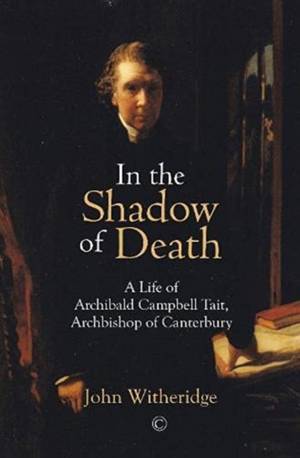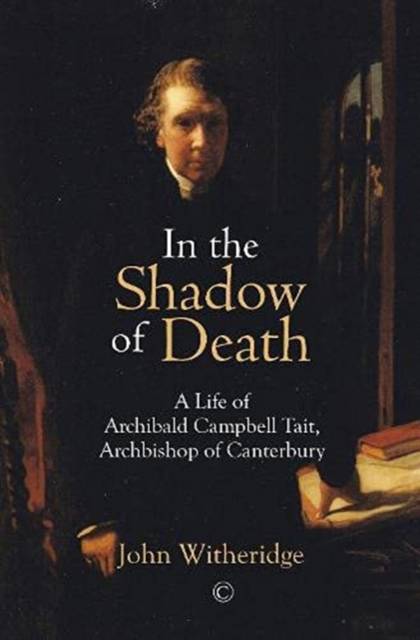
Door een staking bij bpost kan je online bestelling op dit moment iets langer onderweg zijn dan voorzien. Dringend iets nodig? Onze winkels ontvangen jou met open armen!
- Afhalen na 1 uur in een winkel met voorraad
- Gratis thuislevering in België vanaf € 30
- Ruim aanbod met 7 miljoen producten
Door een staking bij bpost kan je online bestelling op dit moment iets langer onderweg zijn dan voorzien. Dringend iets nodig? Onze winkels ontvangen jou met open armen!
- Afhalen na 1 uur in een winkel met voorraad
- Gratis thuislevering in België vanaf € 30
- Ruim aanbod met 7 miljoen producten
Zoeken
In the Shadow of Death
A Life of Archibald Campbell Tait, Archbishop of Canterbury
John Witheridge
Hardcover | Engels
€ 125,95
+ 251 punten
Uitvoering
Omschrijving
In this, the first biography of Archibald Campbell Tait since his son-in-law, Randall Davidson's in 1891, John Witheridge tells the story of how a Scottish outsider became Queen Victoria's favourite Archbishop of Canterbury, and the most powerful since Laud in the seventeenth century. Following his childhood in Edinburgh and education at Glasgow University and Balliol College, Oxford, Witheridge describes how Tait's life was shaped by faith, duty and diligence, as well as by harrowing experiences of illness and death. Tait was never content to be an ecclesiastical dignitary, but was ready to intervene and give a lead in the many conflicts, theological and political, that defined his fourteen years at Lambeth. While not always successful, Tait's leadership of the Church during a period of controversy at home and challenge overseas, bravely accomplished against a background of personal tragedy, makes him a landmark figure in the history of the Church of England.
Specificaties
Betrokkenen
- Auteur(s):
- Uitgeverij:
Inhoud
- Aantal bladzijden:
- 207
- Taal:
- Engels
Eigenschappen
- Productcode (EAN):
- 9780227177433
- Verschijningsdatum:
- 26/08/2021
- Uitvoering:
- Hardcover
- Formaat:
- Genaaid
- Afmetingen:
- 246 mm x 157 mm
- Gewicht:
- 498 g

Alleen bij Standaard Boekhandel
+ 251 punten op je klantenkaart van Standaard Boekhandel
Beoordelingen
We publiceren alleen reviews die voldoen aan de voorwaarden voor reviews. Bekijk onze voorwaarden voor reviews.











